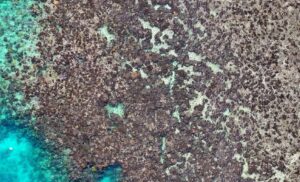
Georgia Gardiner, a vibrant 28-year-old mother from Leeds, has been given just 12 months to live after being diagnosed with a rare and aggressive form of stomach cancer. Initially, her symptoms of nausea, stomach cramps, and loss of appetite were dismissed as mere indigestion and heartburn by medical professionals. However, persistent pain and significant weight loss prompted further investigation, leading to the discovery of linitis plastica, a rare cancer that had already spread to her lymph nodes and other organs.
Georgia’s ordeal began last summer when she started experiencing severe digestive issues. Despite making multiple visits to her general practitioner and local hospital, her symptoms were repeatedly attributed to acid reflux. It was only after months of insistence that she was referred for an endoscopy, which revealed the devastating diagnosis.
Understanding Linitis Plastica
Linitis plastica is a rare form of stomach cancer characterized by the thickening and stiffening of the stomach walls, often referred to as “leather bottle stomach.” This condition is typically diagnosed late due to its subtle early symptoms, which include long-term stomach pain, early satiety, nausea, vomiting, and weight loss.
“I felt invincible. I never thought that I would develop cancer at 28. My world fell apart when I was informed that it is incurable,” Georgia said.
The cancer is linked to diffuse-type gastric adenocarcinoma and can be associated with genetic mutations, particularly in the CDH1 gene. This mutation is connected to hereditary diffuse gastric cancer (HDGC), significantly increasing the risk of developing linitis plastica. Environmental and lifestyle factors, such as infection with Helicobacter pylori, dietary habits, and smoking, may also contribute to its onset.
The Challenges of Treating Linitis Plastica
Linitis plastica is notoriously difficult to treat. Its rapid spread and resistance to conventional chemotherapy limit treatment options. By the time symptoms become apparent, the cancer is often at an advanced stage, restricting the possibility of surgical intervention. Palliative surgeries may be attempted, but complete surgical resection is rare.
“Had I been taken seriously sooner, perhaps we could have nipped it in the bud before it spread. I just want others to get it in time,” Georgia explained.
Georgia’s case highlights the importance of early detection and the need for patients to advocate for their health. Her message is clear: do not ignore persistent symptoms and insist on thorough medical evaluations.
Living with a Terminal Diagnosis
Despite the grim prognosis, Georgia is determined to make the most of her remaining time. She and her fiancé, Callum Scott, have expedited their wedding plans to create lasting memories with their two-year-old son, Arlo. Georgia remains focused on cherishing every moment, acknowledging the pain of missing out on her son’s future milestones.
“The thing that breaks me is how much I’ll miss in Arlo’s life. He gives my life purpose,” she said.
Georgia’s story serves as a poignant reminder of the unpredictability of life and the resilience of the human spirit. Her determination to fight the disease and raise awareness about linitis plastica is inspiring others to take charge of their health and push for answers when something feels amiss.
Looking Forward: The Need for Awareness
Georgia’s experience underscores the critical need for awareness and education about rare cancers like linitis plastica. While the exact cause remains unknown, understanding potential risk factors and the importance of early detection could save lives. Medical professionals and patients alike must remain vigilant in recognizing and addressing unusual symptoms promptly.
As Georgia continues her journey, she hopes to inspire others to be proactive about their health and to advocate for themselves in the face of medical uncertainty. Her story is a testament to the power of perseverance and the impact of sharing personal experiences to foster greater understanding and change.






